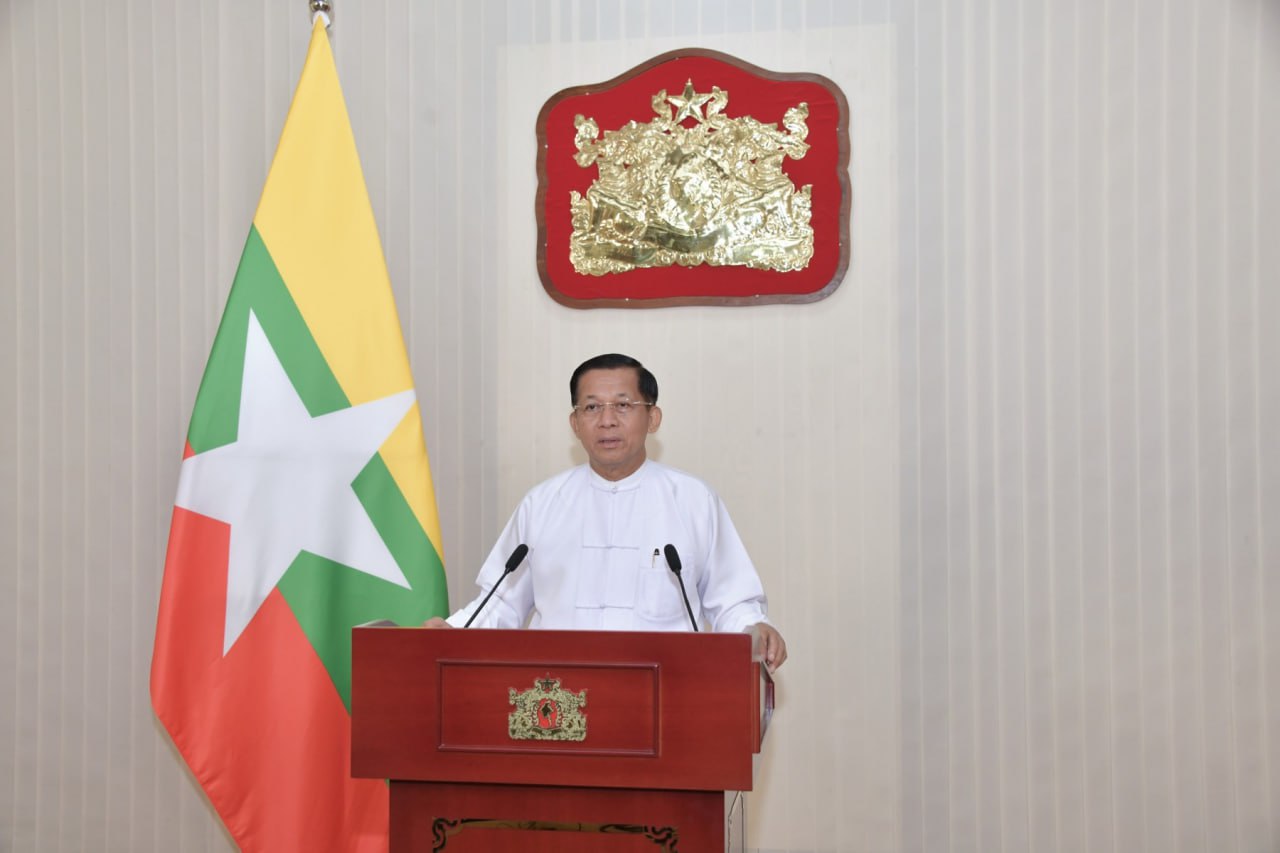Nay Pyi Taw, April (19)
Military leader General Min Aung Hlaing has said that Myanmar’s economic growth will be stronger than the previous year amidst the country’s instability driven by military coup.
He stated in his New Year’s speech that the country suffered economic challenges in 2021, and productivity increased in 2022 as border trade was reopened to some extent.
Therefore, Myanmar’s economy can grow to almost plus 3 percent in 2023, and the situation will improve, the junta leader said.
An economist said that due to the current instability, Myanmar’s economy is not likely to improve and will take a long time to recover.
“There is still a lot to do to return to the level before the military takeover. According to these international estimates, the country’s economy will drop to 18 percent in 2021. The economy will only reach the current situation in 2019 or 2020 if it recovers 12 percent of the current level. It was the worst in Myanmar’s history, and the economy really went upside down,” said he.

The junta leader also stated that it is necessary to operate firm businesses as well as encourage domestic manufacturing for a booming state economy. The government is encouraging MSME businesses.
An MSME business owner claimed that although the military council supports these companies, the terms of their loans are excessively stringent, and the business owners are having a hard time getting loans.
“For some loans, the military council asked at least 3 entrepreneurs to form a group. When the military council asked at least businessmen to guarantee this loan, some of them did not want to take responsibility for other people’s businesses,” he said.
Micro, small, and medium-sized enterprises (MSMEs), on the other hand, are finding it difficult to continue operations due to power outages, high prices of raw material and gasoline, and general expenses.
According to a World Bank report on March 31, Myanmar’s economy has suffered a significant drop owing to conflicts in the two years since the military coup, and the GDP will only reach 3% until September of this year.
The report added that widespread violence, worsening power shortages, and policy failures will continue to disrupt an economy already crippled by political and social turmoil, and the business environment is unlikely to materially improve with regulatory uncertainty.
News-Than Lwin Times
Photo-MOI


